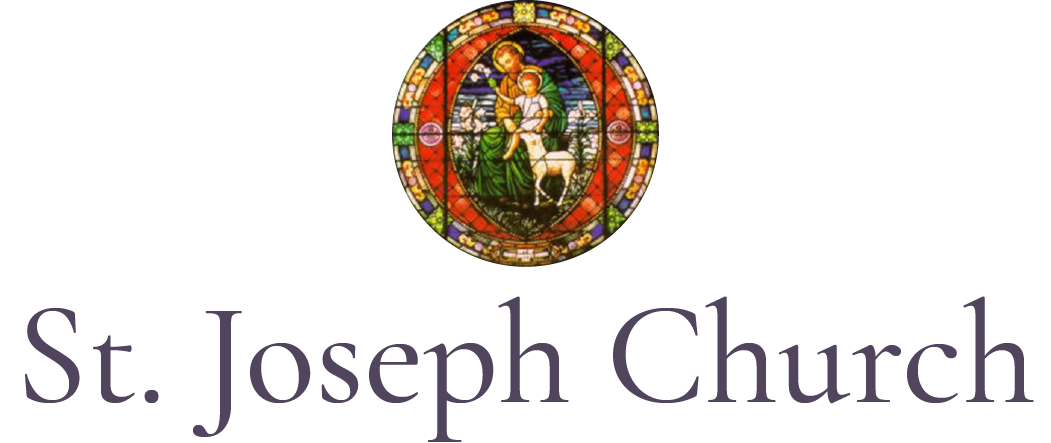Divine Mercy Sunday
 Divine Mercy Sunday: April 27, 2025
Divine Mercy Sunday: April 27, 2025
(Always the first Sunday after Easter)
St. Joseph Church will have Eucharistic Adoration following the 8 am Mass and ending with Benediction at 10am on Divine Mercy Sunday. Confession will be available during that time.
Q. What extraordinary graces are available on Divine Mercy Sunday?
A.
Our Lord revealed to St. Faustina His desire to literally flood us with His graces
on that day. He told her: On that day the very depths of My tender mercy are open. The soul that will go to Confession [beforehand] and receive Holy Communion [on that day] shall obtain complete forgiveness of sins and punishment ( Diary
699).
The theologian who examined St. Faustina's writings for the Holy See, Rev. Ignacy Rozycki, explained that this is the promise of a complete renewal of baptismal grace
, and in that sense like a "second Baptism"(in much the same way that St. Catherine of Siena called sacramental Confession, undertaken out of true love of God, an "ongoing Baptism") ( The Dialogue
, no. 75).
The extraordinary graces promised to the faithful by our Lord Himself through St. Faustina should not be confused with the plenary indulgence granted by Pope John Paul II for the devout observance of the Second Sunday of Easter (Divine Mercy Sunday). The Decree of the Holy See offers:
"A plenary indulgence, granted under the usual conditions ( sacramental confession, Eucharistic communion and prayer for the intentions of our Pope
) to the faithful who, on the Second Sunday of Easter or Divine Mercy Sunday, in any church or chapel, in a spirit that is completely detached from the affection for a sin, even a venial sin, take part in the prayers and devotions held in honour of Divine Mercy, or who, in the presence of the Blessed Sacrament exposed or reserved in the tabernacle, recite the Our Father and the Creed, adding a devout prayer to the merciful Lord Jesus (e.g. Merciful Jesus, I trust in You!)..."
You may recite the Divine Mercy Chaplet, following the instructions found in the little red pamphlet in our Church vestibule.
Q. When should I go to confession?
A. You do not have to go to confession on Mercy Sunday itself. We know from her Diary that St. Faustina made her confession in preparation for Mercy Sunday on the day before (Diary 1072). In fact, all of Lent should be a preparation to make a good confession to receive Holy Communion worthily on Easter Sunday and Divine Mercy Sunday.
Sin is the only obstacle to our fervent reception of Holy Communion, and our sins can be wiped away by the Sacrament of Reconciliation. The important thing is to receive Holy Communion on these great feast days in a state of grace, and with great trust in God's mercy. Don't wait until the last moment;
take advantage of the extra confession time that is made avail
able
during Lent.
Q. If Pope John Paul II declared the Second Sunday of Easter as Divine Mercy Sunday, why don't all churches celebrate it?
Some pastors refuses to acknowledge the Feast.
A.
The National Conference of Catholic Bishops requires that this day be celebrated as "Divine Mercy Sunday," as requested by Pope John Paul II
when he made it a universal Feast: "Throughout the world, the Second Sunday of Easter will receive the name Divine Mercy Sunday, a perennial invitation to the Christian world to face, with confidence in divine benevolence, the difficulties and trials that humankind will experience in the years to come." ( Ordo
, April 7, 2002)
Your pastor will find Divine Mercy Sunday explained in the Ordinal for April 7, 2002. The Ordinal is the book of directives from the Church that priests are required to follow. If these directives are being ignored in our parishes, we can only remind our local pastors and pray for them that they may recognize the significance of this day. At the minimum, priests should announce that this day is Divine Mercy Sunday and preach about mercy at all the Masses. That is all that is strictly required by the Church. In addition, if pastors are willing, there are many other ways to enhance the celebration of this Feast.

